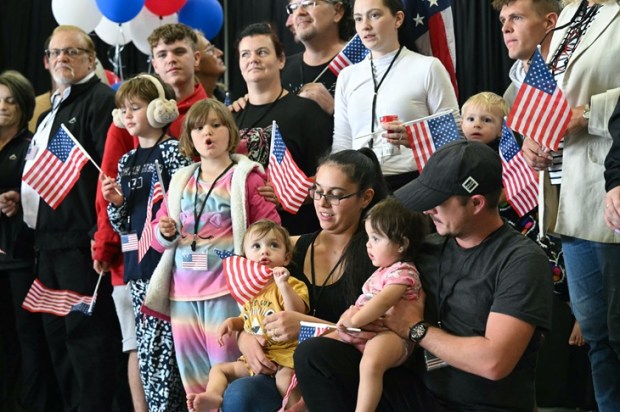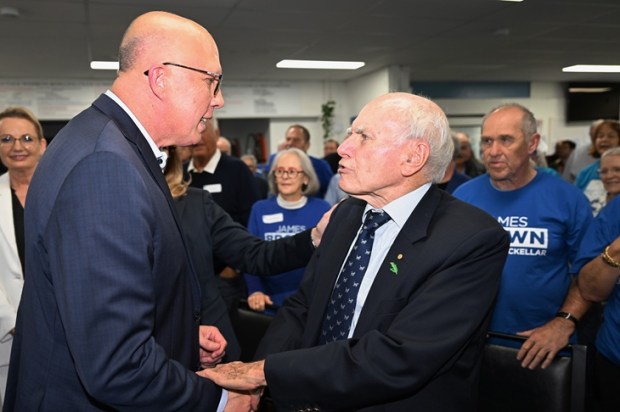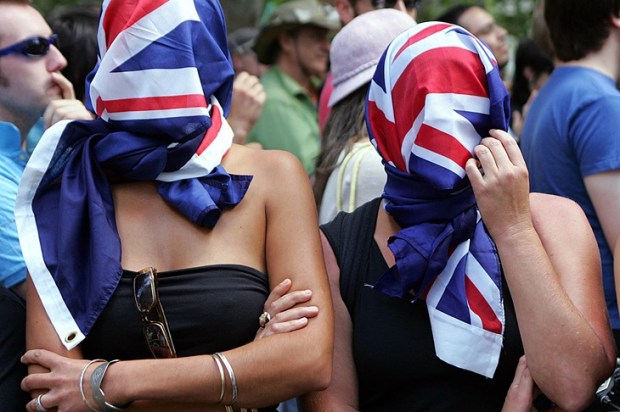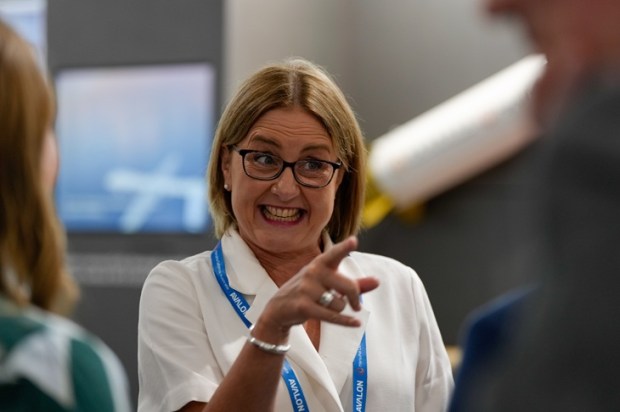President Zelenskyy of Ukraine met US President Donald Trump in the White House, initially to finalise the detail on a much anticipated mineral-security deal, and the whole thing went about as badly as it is possible to go.
By now, most of you have probably seen the two-minute clip of the pair arguing in front of the press and the subsequent outpouring of vague yet sincere support from European and Western leaders on social media, but the hostilities did not come out of nowhere.
What some of our subscribers have described as a WWE vibe occurred toward the end of a 50-minute joint press conference in which President Trump was not at all the bully mainstream media is attempting to depict him as.
The tone was more of a man who lost his patience after a guest attempted to weaponise the press live on air while begging for help.
Not an advisable thing to do with a man like Donald Trump whose personal history involves being hounded by the press, very nearly to a jail cell, for the last five years.
Throughout the event, it was Trump who kept raising the flag of peace and offering moments of levity as a way out for Zelenskyy whenever he veered off into territory that might jeopardise any pending peace deals with Russian President Vladimir Putin. Trump even intervened when Zelenskyy allowed himself to be baited by leading questions from press outlets who seemed to be more interested in chasing headlines than ending the violence which is stealing a generation of young men.
Yes, Russia is using blood in an attempt to move the lines on the map of Europe but this is the White House, not the Hague, and America is being asked to sacrifice a great deal to sort out a European war which European nations enabled through either their dependency on Russian oil and gas, a failure to fund their defence forces, inaction when Russia transgressed previous borders, or even the general chaos following their invitation to the third world which has overwhelmed and white-anted their nations from within to the point that they are broke, demoralised, and ideologically fractured.
Ukraine is seen as a prop of the European leaders while the working classes, in poll after poll, show no interest in sacrificing their lives fighting Russia.
Donald Trump is a President with responsibilities to the American taxpayer and it is not at all obvious whether he has a mandate to continue spending a fortune on Ukraine without some sort of guarantee that peace is on the horizon.
Let’s wind this whole thing back a bit and see what really happened at the infamous press conference.
It began well, with Trump confirming the promise of a deal.
‘We have something that is a very fair deal. We look forward to getting it and digging digging digging and getting some of the rare earths … and it’s a big commitment from the United States and we appreciate working with you very much. We have had some very good discussions with Russia. I spoke with President Putin and we are going to try and bring this to a close. It is something that he wants, something that you want.’
Trump went on to talk about the number of soldiers being tragically killed and his desire to see the money put toward the rebuilding effort instead of on more destruction.
That is the developer in him, right there. Trump wants to build. It is in his blood. He says later that he would like to be remembered as a peacemaker:
‘I hope I’ll be known and recognised as a peacemaker … this is a very dangerous situation. This could lead to a third world war. This was headed in the wrong direction.’
Trump was serious when he made that comment, and while he took a moment to praise his election result, he strongly implied that a Biden/Harris victory would have sent the world tumbling into the meat grinder of global war.
After six minutes of relative success, Zelenskyy brought out a folder containing photos, essentially as a bit of theatre for the press. This was where things began to fall apart for the pair. Every photo Zelenskyy handed President Trump, demonstrating the horror of Russia’s behaviour in the war, was like a stone being thrown on the life raft of peace talks.
Zelenskyy, in attempting to gain sympathy on the world stage in exchange for support, was sabotaging Trump’s efforts to end hostilities. He has done this many times, but Trump is a different sort of President and by that I mean, Trump is the first world leader serious about actionable peace rather than unreachable fantasies.
Bringing photos to the press conference was a calculated decision, not a verbal fumble.
Trump immediately asked the press if they had any questions so that he could end that performance, but by then his body language had changed. These questions calmed the conversation for a while and Trump seemed more comfortable talking about the future rather than the past.
There was even a moment of friendly bonding in which the two leaders drew closer and joked about Europe’s amount of support (or lack thereof, if you listen to Trump).
At fifteen minutes in, Zelenskyy took the discussion off a cliff. When replying to a member of the press, he said:
‘President [Trump] speaks about the people and the soldiers which are dying but they came to our territory, they came to our land, they began this war, and they have to stop. This is the question which is really the most important question, can President Trump, I hope yes, with some other allies, stop Putin? Withdraw these enemies from our land? I think you asked about the history … if President Trump will bring peace to our country, I think he will be on this wall [Zelenskyy gestured to the wall where the Presidential portraits hang].’
Now, all of that might be true, but keep in mind what Donald Trump is trying to do with these press conferences, not only with Zelenskyy, but with France’s Macron and the UK’s Keir Starmer… This is a delicate negotiation, not a trial. That comes later. Trump alluded to this toward the end when the press were hassling him about being ‘tough’ and the dangers of being seen to align himself with Russia which was a favourite narrative among outraged leaders.
He responded:
‘Well, if I didn’t align myself with both of them [Ukraine and Russia] you’d never have a deal. You want me to say really terrible things about Putin and then say, “Hi Vladimir… How are we doing on the deal?” It doesn’t work that way. I am not aligned with Putin. I am not aligned with anybody. I am aligned with the United States of America and for the good of the world. I am aligned with the world and I want to get this thing [the war] over with.
‘You see the hatred [Zelenskyy] has got for Putin – it is very tough for me to make a deal with that kind of hate. You’ve got tremendous hatred. And I understand that, but I can tell you the other side is not exactly in love with him either … you want me to be tough? I can be tougher than any human being you’ve ever seen. I’d be so tough. But you are never going to get a deal that way.’
This was said in a moment of frustration and passion. Trump described himself as an arbitrator between the two parties of a vicious war which does not mean he sides morally with the Russian position, he is trying not to antagonise the nuclear-armed negotiating party.
It was right after this that a member of the press asked Zelenskyy why he wasn’t wearing a suit.
‘Why don’t you wear a suit? You are at the highest level in this country’s office, and you refuse to wear a suit … do you own a suit? A lot of Americans have problems with you not respecting this office.’
He tried to reply with a small amount of humour but the reporter had a valid point, however mean-spirited, that Zelenskyy was maintaining a costume of war and using his state of dress to signify the distress of his country. But it is also disingenuous because he has stepped off a jet, not off the field of battle, and he is in the White House asking for a king’s ransom.
‘And I do like your clothing, by the way … I think he is dressed beautifully,’ said Trump. Not exactly the action of a man who walked into the press conference to bully.
‘I have more serious things than answer on such questions. I will answer on more serious questions, if I can,’ replied Zelenskyy.
‘Otherwise, Putin will never stop. And will go further and further. He hate us. It is not about me. He hate Ukrainians. He thinks that we are not a nation. He thinks … he always said that there is no such country, such nation, such language, and such life like Ukrainian. No. He really does not respect all the Ukrainians and he wants [to] destroy us … it is very good but not enough to stop this person … Putin began this war. He has to pay all the money for remuneration. He has to pay.’
This was again followed by another hostile question from a journalist about which side Trump would like to be on.
‘I am in the middle, I want to solve this thing. I am for both. I want to get it solved and it’s wonderful to speak badly about somebody else but I want to get it solved. If we can solve it, great, if we can’t solve it, they are going to have to fight it out and who knows what’s going to happen.’
After an embarrassing bit of ‘me tooing’ from European journalists asking if the President stood behind their country, Trump laid into Europe for not doing enough to defend their own security.
When asked, ‘How do you envision a trilateral summit?’ Trump replied, ‘They do not like each other, I call tell you that much. This is not a love match.’
A political summit is a phrase coined by Winston Churchill in 1950 at a time when climbing Mount Everest was in vogue. Churchill was appealing for a conference on the highest level and a will to reach peace, ironically with Russia, at the summit of nations. An Everest of problems is exactly what Trump is being asked to climb, carrying the unwilling Zelenskyy on his back with a trail of European leaders lost somewhere in the snowdrift behind.
Shortly after this exchange, Zelenskyy once again laid out what he believes Putin’s plan to be, which involves marching through the Baltics to rebuild the old USSR. ‘Your American soldiers, it does not matter if you have ocean or not, you will fight.’ Which is an inflammatory thing for Zelenskyy to say with the US President sitting beside him.
It all fell into a tragedy after this. A reporter asked about Odessa and Trump attempted to show sympathy. ‘A lot of cities have been destroyed. A lot of cities that are not recognisable. There is not a building standing.’
‘Oh no no no,’ Zelenskyy interrupted. ‘You have to come and to look. No no no. We have very good cities. Yes, a lot of things have been destroyed but mostly cities alive. And people work. And children go to school. Sometimes very difficult. Sometimes closer to front line. Children have to go to underground schools or online. But we live. Ukraine is fighting. Ukraine lives. This is very important. And maybe it is Putin who is sharing this information that he destroyed us. He lost 700,000 people.’
How did we get here? Can you see the problem developing?
Rather dejected, Trump expressed his frustration that his whole life, all he does is make deals but at the moment he is in the middle of a mess. ‘This is a real mess. It is very dangerous one.’
It was after this that the viral exchange took place. Trump had lost patience with Zelenskyy undermining negotiations and also with European members of the press serving the interests of clickbait.
JD Vance essentially lit the aggression on fire, saying that for four years, America had a President that ‘stood up at press conferences and talked tough about Vladimir Putin and then Putin invaded Ukraine’. And he is not wrong. That is what happened. Like a yapping, deranged chihuahua, Biden’s words caused little more than a moment of annoyance. ‘The path to peace and the path to prosperity is maybe engaging in diplomacy,’ added JD Vance. ‘We tried the pathway of Joe Biden. Of thumping our chest and pretending that the President of the United States’ words mattered more than … actions.’
And that was the last civil word that was had in that press conference.
After a long and heated exchange, JD Vance said, ‘Mr President [meaning Zelenskyy], I think it is disrespectful for you to come into the Oval Office and try to litigate this in front of the American media … you should be thanking the President for trying to bring an end to this conflict.’
Trump bit into the conversation after Zelenskyy folded his arms and started talking about what America was going to ‘feel’ across its protective ocean.
‘Don’t tell us what we are going to feel,’ Trump snapped. ‘Because you are in no position to dictate that … we are going to feel very good and very strong.’
After this meeting, X looked like an Assembly at the United Nations, with world leaders, including Australia and New Zealand, offering their support without daring to mention the breakdown of negotiations that triggered their outpouring of virtue.
Zelenskyy was all but thrown out of the White House and the official accounts of the United States government spat out a few passive-aggressive tweets suggesting Ukraine was being told to stand in the corner for a while.
Reading the list of nations supporting Zelenskyy on X, President Trump’s frustrations become obvious. There are more than enough names that, had they really wanted to stop Russia three years ago, they could have done so but the truth is exactly what Trump said when he was President the first time around.
Europe laid the conditions for Russia’s invasion by making themselves dependent on Russian oil and gas. By refusing to invest in their military. And by destroying their economies with Net Zero. This is their mess. This is their negligence. They live with an expansionist neighbour and they left their doors unlocked.
If anyone is acting as the bully in this scenario, it is the flock of world leaders who use social media to trumpet their virtue but who then shove America into the conflict and pick their pockets while they are at it.
Moral clarity about Russia is only part of the story. There are realities at play that do not have easy answers. The failures of the peaceful and of the passive have manifested as a bloodbath. It takes strength to negotiate peace. And Europe has made itself weak.
Until the Presidents and Prime Ministers who sent out messages of support are prepared to put their own children on the battlefield, they should be more careful about how they criticise the one man trying to stop a world war.

























